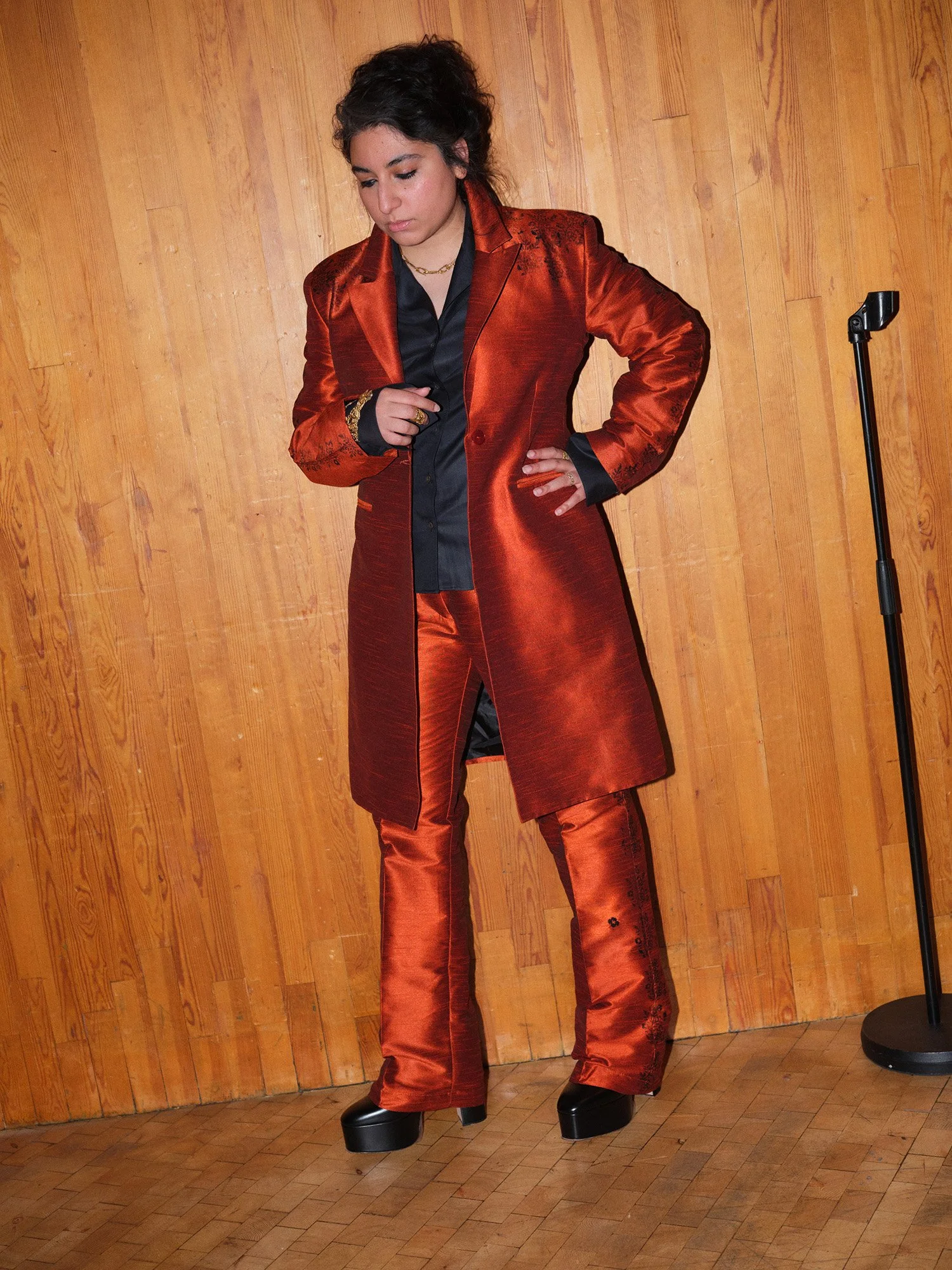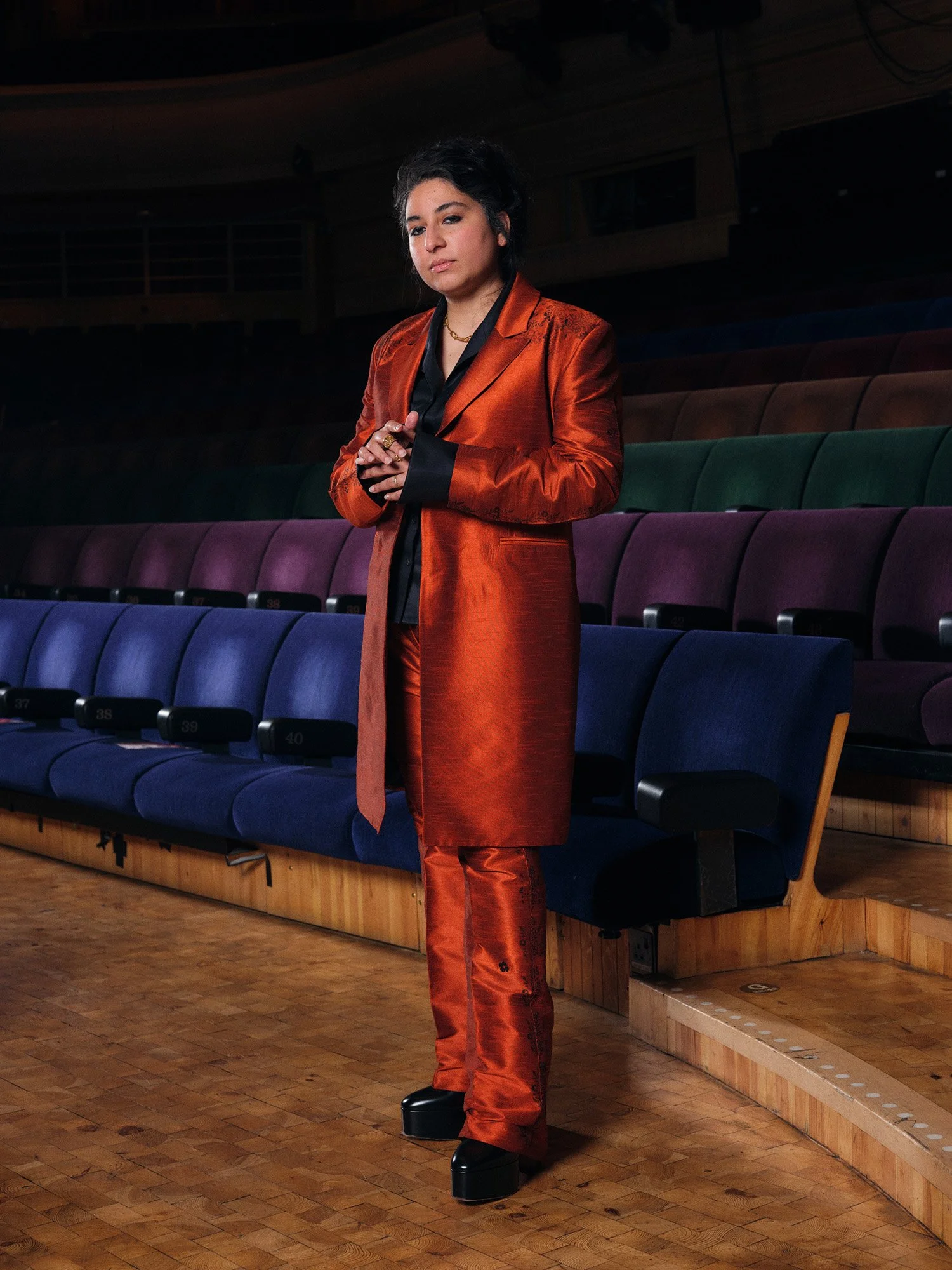
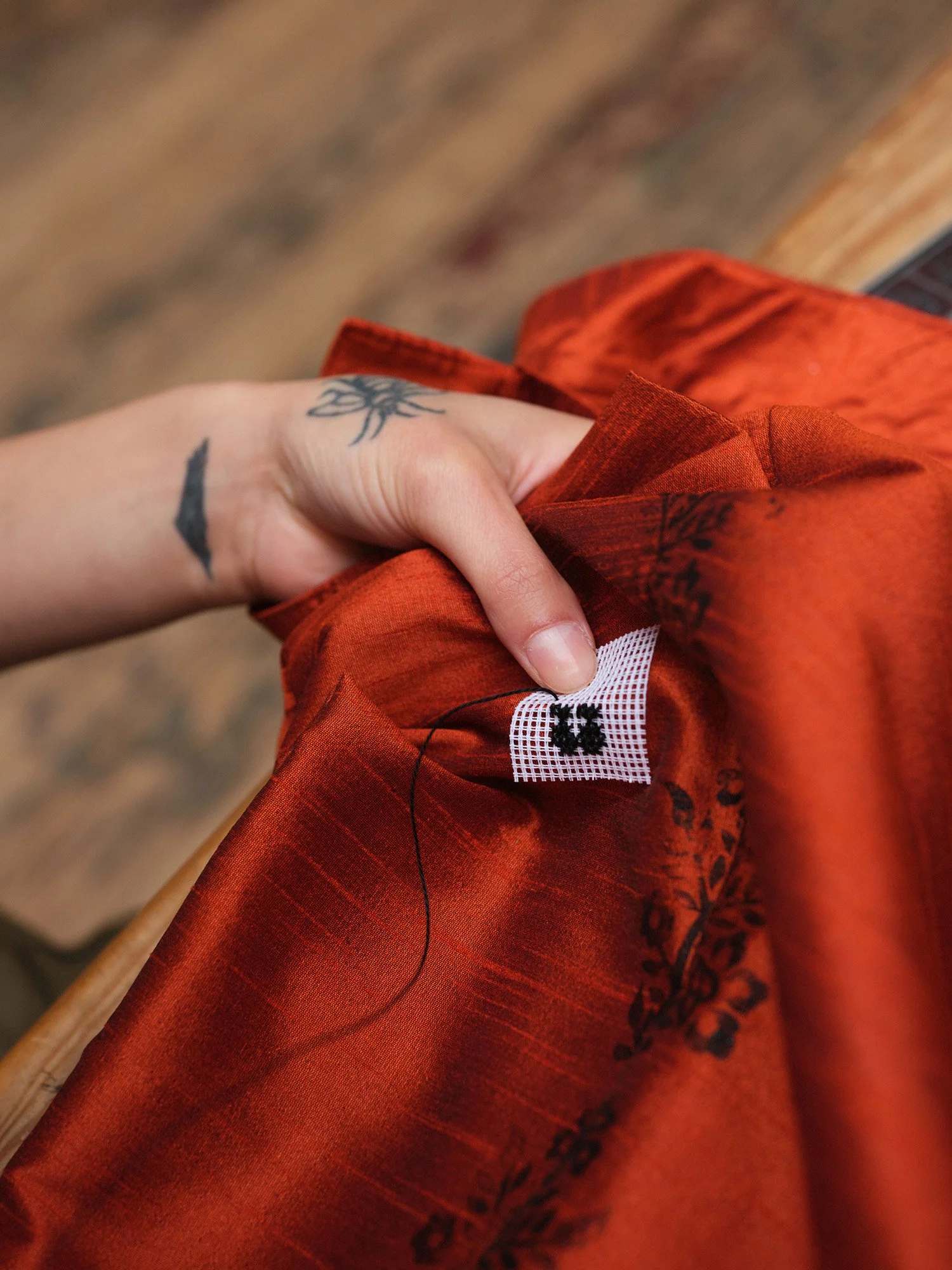
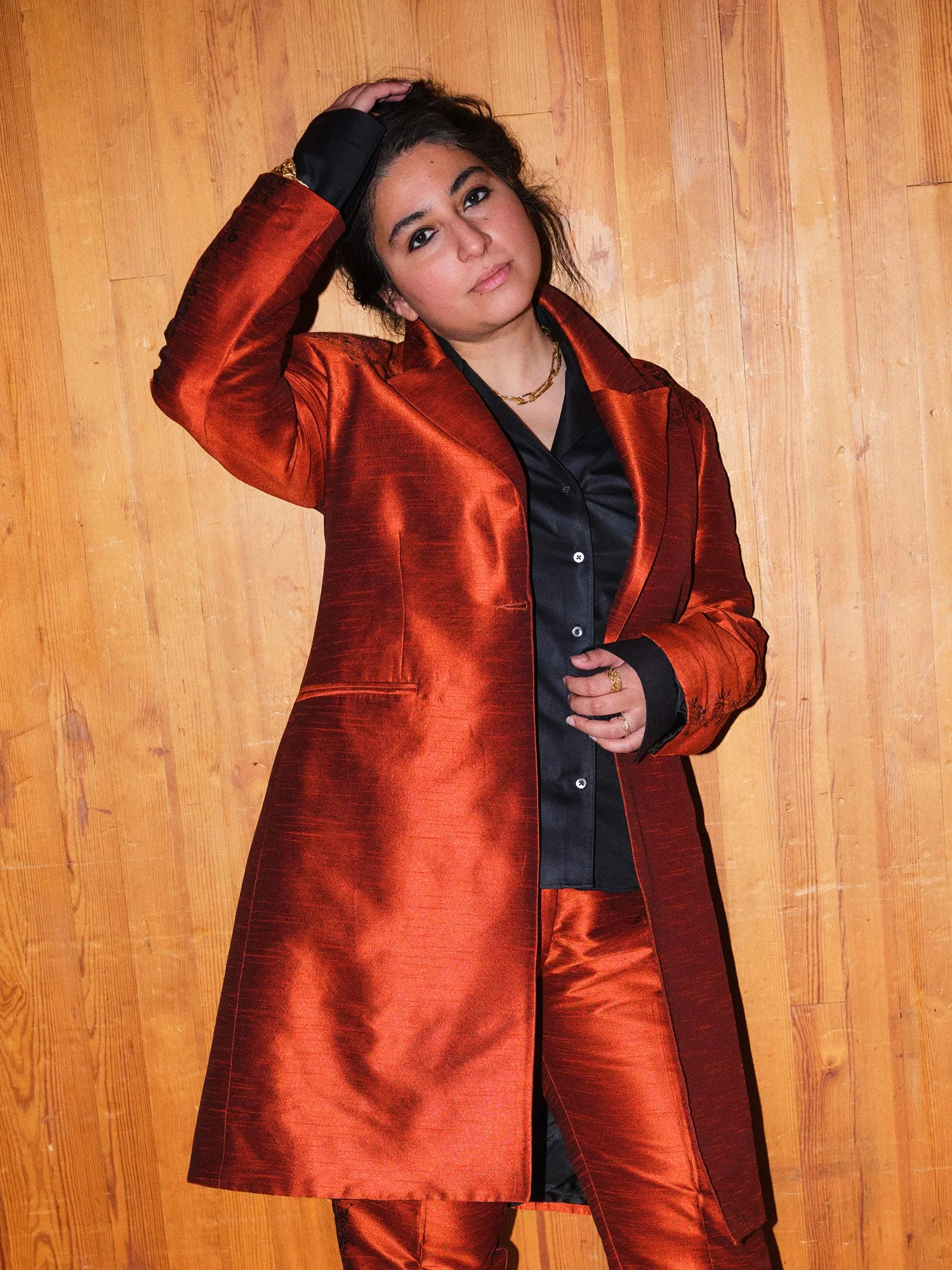
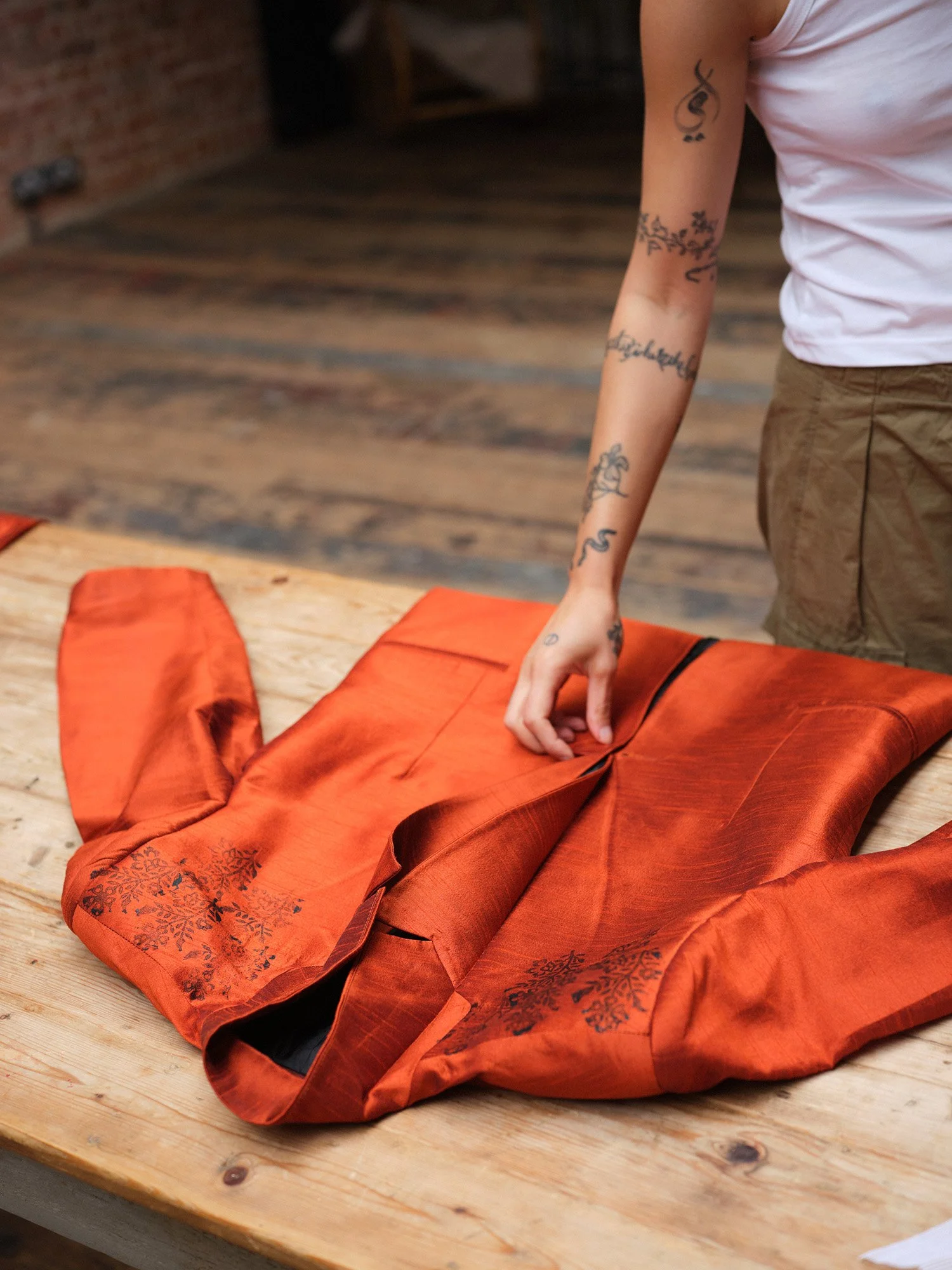
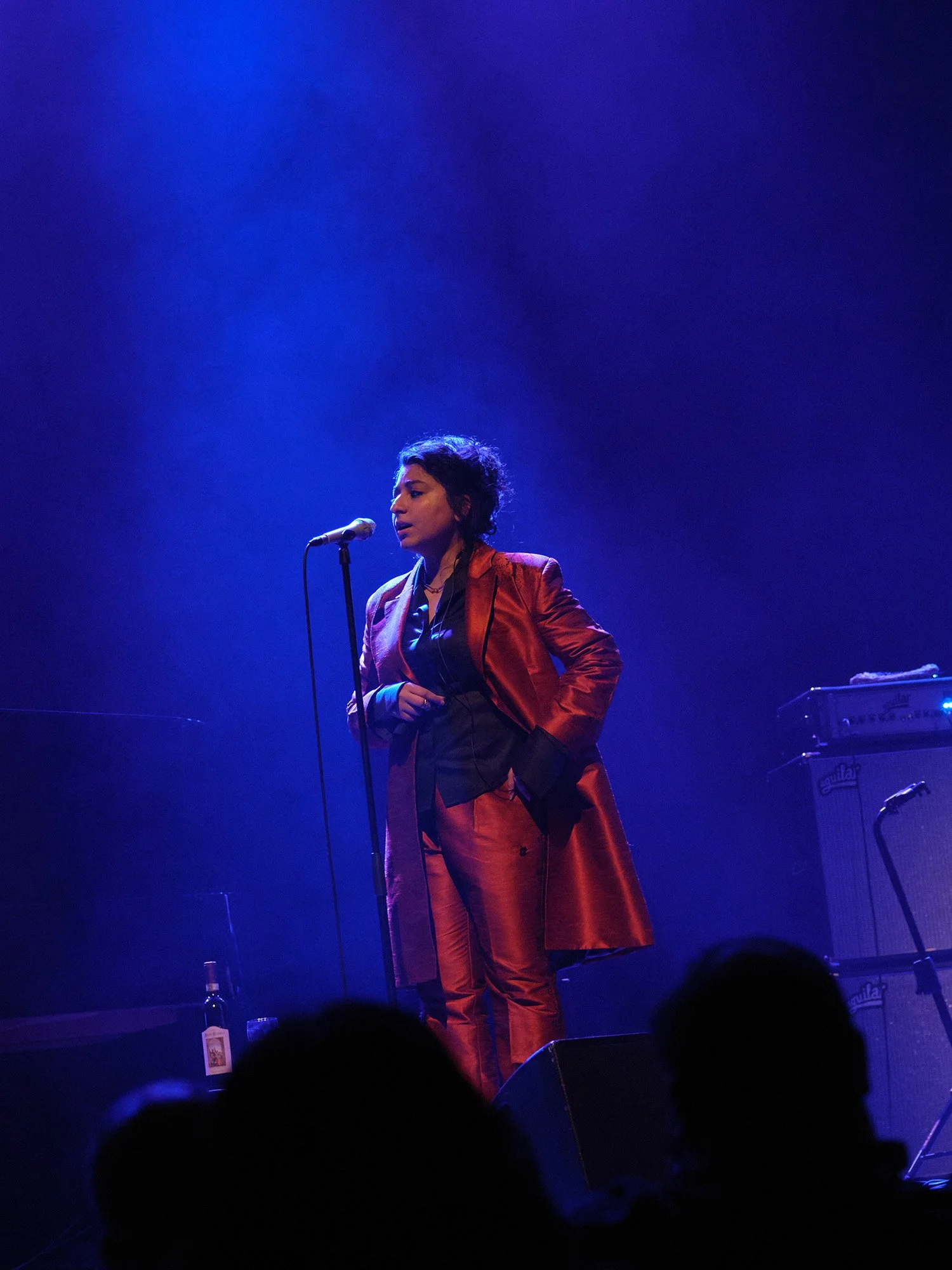
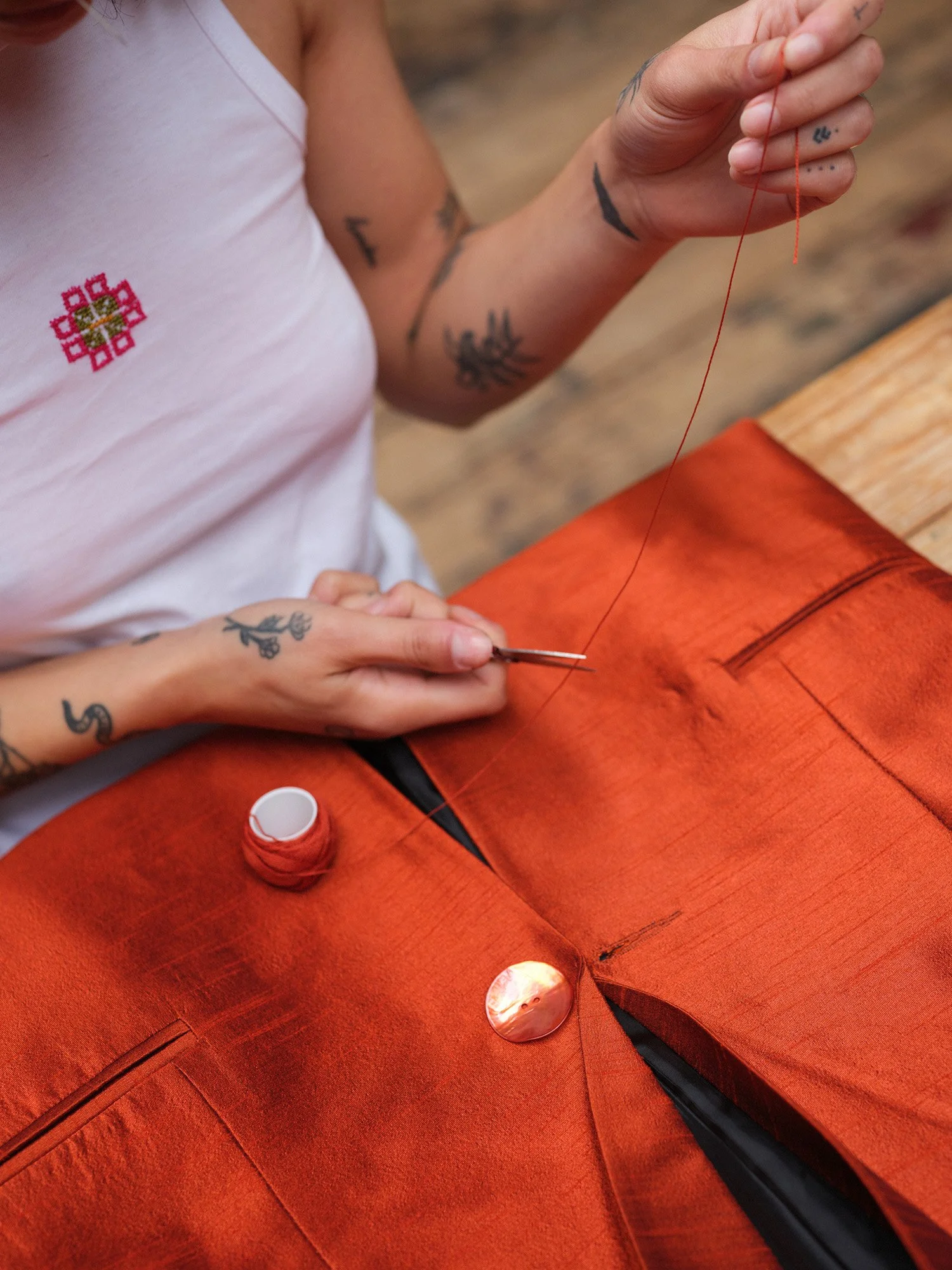
Arooj Aftab Found Her Latest Performance Outfit in the Heart of a Palestinian Refugee Camp
written by Shahamat Udin for vogue.com
An Arooj Aftab performance is filled with “little secrets,” she tells Vogue. The Grammy- winning Pakistani artist blends jazz, folk, and electronics with traditional South Asian vocal techniques and Urdu ghazals. The lush, harrowing melodies almost leave listeners in a trance. But, when Aftab takes her songs to the stage, she aims to create experiences that move much further past a listener’s ears.
“I want them to live in my world for that moment,” says Brooklyn-based Aftab about her audience. “Live performance is the most alive part of being a musician and I need to be careful about that.” When it's time for her to choose what clothes she wears on stage, she wants her outfits to ignite “excitement” and exude “drama” wherever she performs. So as Aftab approached her performance at London’s Barbican Hall on June 2, she decided to collaborate with a designer who could translate the gravity of her music into her wardrobe, while, perhaps, adding their own distinctive narrative in the process.
She chose to work with Yasmeen Mjalli, founder and creative director of Nöl Collective, a self-described intersectional fashion house creating garments in the Palestinian territories. Aftab was given her first Nöl piece, a blazer, by her manager back in October 2021; they were both fans of Mjalli from her earliest designing days. She was moved by the Palestinian children’s poem embroidered on the back of the jacket, and loved the “shades of emotion” in the gifted blazer. She wore it for her
debut NPR Tiny Desk concert which was released in December of that same year. Several friends shared the video with Mjalli and the two soon began planning a collaboration for Aftab’s 2023 international tour, a two piece silk performance suit that would combine symbols of Aftab’s Pakistani heritage with Mjalli’s Palestinian roots.
“When I started thinking about what I wanted to create for Arooj, I was drawn to how effortlessly she embraces strong, powerful looks. She wears blazers and capes with big shoulders and is commanding in her aesthetic,” says Mjalli. “I wanted to emulate that in this piece for Barbican and her tour and give her a powerful presence on stage.”
Mjalli created Nöl, meaning loom in Arabic, in March 2021 out of what she says are the “ashes” of Babyfist. Babyfist was a feminist clothing line Mjalli launched in 2017 after a photo of a denim jacket she painted with the phrase “Not Your Habibti” went viral. Still, Mjalli felt that the brand’s outward message clashed with its production.
“I felt like I was doing a lot of things wrong,” says Mjalli about Babyfist. “How feminist could we say the endeavor was if we didn’t actually know where the T-shirts were being made, where the fabric was coming from, and how much people were getting paid.”
She now wanted to be involved in every step of production of her garments and employ Palestinian craftspeople, but the only problem was that Mjalli didn’t know anyone who was continuing the long Palestinian history of fabric dyeing and cross- stitch embroidery. Mjalli began hunting. Her search brought her to a place where many find themselves after a seemingly futile journey: Facebook.
It was there that she discovered groups of Palestinian women embroidering in their homes, preserving the ancestral tatreez, a laborious cross-stitch embroidery technique traditionally taught to a Palestinian daughter by her mother.
“For centuries before Palestine was colonized, you could look at a woman and by the motifs, colors and tatreez on her dress, you could tell exactly where she was from because the design was so hyper-specific to her village or region. It was almost like a visual autobiography,” Mjalli says.
After the Palestinian Nakba in 1948, Mjalli says tatreez took on an even deeper meaning. “It was then when Palestinians were uprooted and their villages were destroyed. The memory of villages were kept alive through embroidery and dresses that were going to be passed down,” she says. “These women’s clothes really became maps of their own, a reminder of what Palestine once was.”
With a hyper-focus on slow fashion, Nöl naturally gravitated toward the sustained practice of tatreez, a style meant to live beyond any one person’s lifetime. As Nöl’s designer, Mjalli selects a specific tatreez motif for each individual embroidered garment that matches what she believes stylistically complements the piece. Her embroiderers are “well versed in a vast library of tatreez motifs,” and can embroider the patterns at large scale for Nöl’s global consumers.
Through word of mouth from her newfound embroiderers and others she found in Facebook groups, Mjalli slowly uncovered a vast network Palestinian craftspeople that would ultimately shape the foundation of Nöl’s textile production.
Although fruitful for finding embroiderers and weavers, her Facebook search hadn’t led her to an ideal suits and blazers tailor just yet, like the one she would need to create Aftab’s piece. In February 2021, Mjalli was strolling through the old city in Nablus when she serendipitously struck up conversation with a friendly tour guide, Basel. Mjalli shared her ongoing search for a tailor and in classic Arab hospitality, Basel invited Mjalli to take a ride with him throughout Nablus to meet the craftspeople he knew. It was then that she was introduced to Khalid, Amin, and Hamdi (who, like Basel, prefer not to share their last names), three brothers living in the Askar refugee camp. The trio would eventually tailor Aftab’s outfit for her performance at Barbican Hall.
“I’ve never seen such detail-oriented and excellent work when it comes to suiting,” Mjalli says. “All of our suits and blazers are made in the Askar refugee camp. Our embroiderers are also working in a village outside of Nablus. All of our T-shirts and sweatshirts are made in Bethlehem and we have weavers who make fabric in Gaza and weavers who make bags in Hebron with additional tailors in Ramallah.”
While Nöl’s story is deeply tied to its Palestinian roots and history, it cannot be separated from its Palestinian reality living under the Israeli occupation. Now, 75 years after the Nakba, the movement of people and goods among Palestinian territories remains highly restricted.
Without the freedom to mail and ship products between tailors, weavers, and artisans, Mjalli pays taxi drivers an extra fee to transport Nöl’s materials from territory to territory. When that’s unavailable, Mjalli gets behind the wheel herself and spends hours—sometimes days—moving her textiles back and forth. Despite this, she’s never been able to meet her weavers working out of Gaza, and when it’s time to ship her products out of Palestine, Mjalli can only do so in her home city, Ramallah.
“Shipping is always a nightmare,” says Mjalli. “Our products are often randomly detained by Israeli authorities and held up in checkpoints for days or even weeks at a time. With unexpected border closures by the Israeli military and national strikes, I can never guarantee to my customers when their product will actually arrive.”
For Aftab’s specific piece, Mjalli’s mother drove the selected fabric from Ramallah to the brother tailors in the Askar refugee camp, then back to Ramallah to ship to London weeks before Aftab’s performance. Mjalli was already in London where she planned to block-print and embroider the garment herself, but the day before her fitting with Aftab, the garment still hadn’t arrived. Mjalli learned that the Tel Aviv post office had blocked Aftab’s tailored suit from shipping for reasons undisclosed to her. Less than a week before Aftab’s performance at Barbican, Mjalli worked with her mother to reroute the package through Jordan and then through Saudi Arabia to finally make its way to London.
Luckily, Aftab was more than understanding. In fact, Nöl’s Palestinian identity largely inspired her decision to collaborate with Mjalli. Mjalli settled on a rusted auburn angled blazer and matching block printed pants to custom make for Aftab’s performance at Barbican. Designed by Mjalli and styled by Anna May Sweasey, Aftab’s stage ensemble is made purely out of raw silk taffeta, an homage to the fabric used in Pakistani wedding garments and historical South Asian royalty. On the shoulders, arms and legs of the piece, Mjalli used a block-printed pattern and glittered corners of that print with the tatreez flower motif from Mjalli’s home city, Ramallah.
“I like to be styled with a sense of royalty,” says Aftab. “It’s influenced by my album Vulture Prince, but it’s also a style that preserves the feminine in some ways and in other ways, embodies a person who is brave. I can see it in angles and big shoulders and straight lines. The flowy shit doesn’t really work for me and Yasmeen totally got that.”
Wearing Mjalli’s design at Barbican Hall was a significant moment for Aftab. She says, “I’m really proud to wear garments made by people in Palestinian refugee camps. Oftentimes, there’s really such little hope and you’re just confused as to what you can do that will actually mean something...putting on these clothes is a powerful symbol of support and adds a new dimension to my performance.” A new little secret, if you will.


